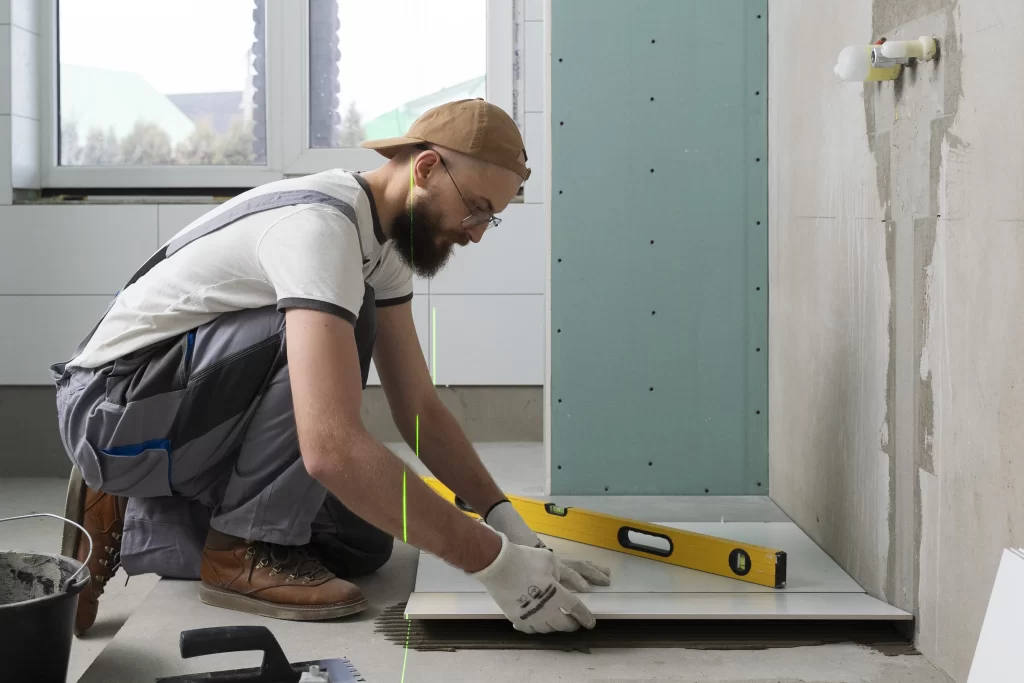Embarking on a home renovation adventure can be as thrilling as it is daunting. It’s a journey that transforms not just the physical spaces we inhabit, but also our daily lives. At the heart of this transformative process is the pivotal decision of choosing the right contractor – a decision that can turn your dream home into a reality or a renovation nightmare. This guide is designed to illuminate the path to finding that perfect match. From understanding the nuances of quotes and contracts to navigating the digital world of reviews, from assessing portfolios to fine-tuning budget negotiations, and finally, to syncing timelines and sealing the deal, each step is a crucial waypoint in your renovation voyage. Let’s embark on this journey together, equipped with tips, tricks, and a bit of whimsy, to ensure your renovation story is one of success and satisfaction.
Identifying the right Contractor
Venturing into the realm of home renovation starts with a crucial step: finding a contractor who not only understands your vision but can also bring it to life. This involves determining what you need in a contractor – expertise that aligns with your project type, a shared aesthetic sense, and a robust track record of successful projects. Consider factors like specialization (e.g., historical restorations, modern designs), communication style, and approach to problem-solving. This stage is about aligning your dream with a contractor who can fulfill it while respecting your budget and timelines.
Begin by listing your must-haves and nice-to-haves in a contractor. Then, embark on a preliminary search – asking for referrals from friends and family, scouring local online forums, and checking out industry associations. This initial research will help you create a shortlist of potential candidates. It’s like matchmaking; you’re looking for a contractor whose skills, experience, and approach resonate with your project goals and personal style.

Decoding the Contractor's Lexicon
Quotes and contracts can often seem like a maze of technical jargon and fine print. However, understanding these documents is crucial for a transparent and successful renovation journey. A quote should clearly outline the cost, scope of work, materials to be used, and estimated timelines. It’s important to ensure that everything you discussed is included in the quote to avoid unexpected costs later. Contracts, on the other hand, formalize the agreement between you and the contractor, detailing terms of payment, dispute resolution mechanisms, and how changes to the project will be handled.
Don’t hesitate to ask questions if certain terms or clauses are unclear. It’s essential to fully comprehend what you’re agreeing to. Seek clarification on payment schedules, what happens if there are delays, and how additional charges will be handled. A trustworthy contractor will be patient and clear in their explanations. Remember, a well-understood contract is the foundation of a smooth renovation experience, minimizing misunderstandings and setting clear expectations for both parties.
Researching Contractor Reviews and Ratings
In today’s digital age, a wealth of information is at your fingertips, making it easier to vet potential contractors. Online reviews and ratings can provide insights into a contractor’s reliability, quality of work, and customer service. Websites like Houzz, Angie’s List, or even Google and Facebook can offer a glimpse into other homeowners’ experiences with the contractor. Pay attention to both positive and negative reviews, looking for patterns that might indicate consistent strengths or areas of concern.
However, take online reviews with a grain of salt. They can be subjective and may not always give the full picture. Supplement this digital research with direct communication. Reach out to past clients if possible, asking about their overall experience and if they would hire the contractor again. This dual approach of combining online research with real-world feedback provides a more rounded understanding of what working with a particular contractor might be like.
Gallery of Transformations: Evaluating Past Project Portfolios
A contractor’s portfolio is a window into their craftsmanship and aesthetic sensibility. Reviewing their past projects helps gauge whether their style aligns with your vision. It’s not just about the before-and-after pictures; it’s about understanding the challenges they faced and how they overcame them. Look for projects similar to yours in scope and style, and observe the attention to detail and the quality of finishes in their work.
Don’t shy away from asking for references or the opportunity to visit completed projects. Seeing their work firsthand and hearing a client’s in-person testimony can give you invaluable insights. This step is akin to reading a story through its pictures – it helps you visualize your own project’s potential outcome and ensures that the contractor’s capabilities align with your expectations.
Navigating the Budget Maze: Tips for Cost Negotiation
Discussing the budget can be a delicate part of the contractor-client relationship. It’s crucial to have a clear understanding of your budget constraints and communicate them transparently to your contractor. Be upfront about what you can afford and ask the contractor to provide options that fit within your financial parameters. It’s a balancing act – you want the best results for a fair price without compromising on quality.
Cost negotiation isn’t about haggling but finding a mutually agreeable solution that aligns with the project’s scope and quality. Ask the contractor to break down the quote, understand where your money is going, and discuss where costs can be adjusted without impacting the overall outcome. This process requires open communication and a bit of flexibility from both parties, aiming for a win-win scenario where your vision is realized within a budget that works for both of you.

The Timeline Puzzle: Synchronizing Schedules and Deadlines
Time is a crucial factor in any renovation project. Discussing and agreeing on a realistic timeline is essential to ensure the project progresses smoothly. This involves understanding the contractor’s availability, the time required for different stages of the project, and accounting for any potential delays (like material delivery times or weather conditions). A clear timeline helps in planning your life around the renovation, especially if it involves significant home disruptions.
Be wary of contractors who promise unrealistically short timelines. It’s better to have a realistic schedule than to be disappointed with delays later. Keep in mind that some flexibility may be required as unexpected issues can arise during renovation projects. Regular check-ins and updates from the contractor can help keep you informed about the progress and any changes to the timeline.
Sealing the Deal: Final Checklist Before Signing the Contract
Before you put pen to paper, there’s a final checklist to run through. Ensure all your discussions and agreements are reflected in the contract. Double-check the start and end dates, payment schedule, detailed description of the work to be done, and any warranties or guarantees offered. This is also the time to ensure all legal and permit-related aspects are covered. Make sure the contractor has the necessary licenses and insurance to undertake your project.
It’s also wise to discuss how unforeseen circumstances or changes to the scope of work will be handled. Establish a clear communication plan for the duration of the project. This final review is not just about dotting the i’s and crossing the t’s; it’s about establishing a framework for a successful partnership. Once everything checks out, you’re ready to begin your home renovation journey with confidence.
Conclusion
In conclusion, navigating the labyrinth of home renovation is akin to crafting a masterpiece; it requires patience, precision, and the right collaborator. Choosing the right contractor is more than a business decision—it’s a partnership that shapes the future of your living space. Remember, the cornerstone of a successful renovation project lies in clear communication, thorough research, and a mutual understanding of expectations and deliverables. By following these guidelines, you’ll not only enhance the likelihood of a smooth renovation experience but also forge a relationship that could benefit future projects. As you step into this exciting phase of transformation, keep in mind that every decision, from the initial contractor selection to the final handshake, contributes to the tapestry of your dream home.
Frequently Asked Questions
Compare quotes from different contractors, ensuring they include the same scope of work and materials. Research typical costs for similar projects in your area and don’t hesitate to ask the contractor to break down and explain their quote.
Communicate with your contractor immediately to understand the reasons. Review your contract for clauses related to overages and delays. Discuss possible solutions, and consider negotiating adjustments or compromises.
Absolutely. Verifying a contractor’s license and insurance protects you from liability and ensures they are legally qualified to undertake your project. It’s a crucial step in vetting their credibility and professionalism.

